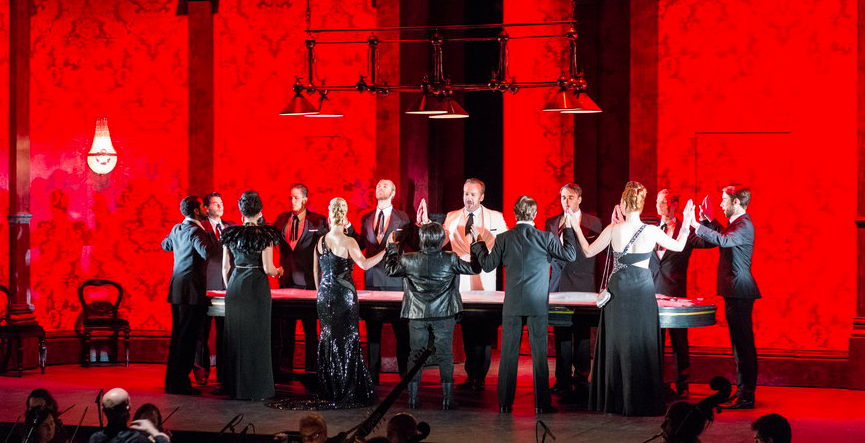An Invitation from Jonathan Kester
Although I live and work far away in the Antipodes, in Perth on the west coast of Australia to be precise, I have been invited to contribute to Lark Reviews.
A recording is available through the link below once the live link ends
http://www.amazon.co.uk/
Faramondo was a rarely performed opera adapted and re-scored by Handel and performed for the first time in London in 1738. Its lack of popularity since is due to two factors. The first is its convoluted and somewhat obscure plot and the second is because it originally required four castrati singers in some of the lead roles. Even for its first performances Handel could only afford one castrato to sing the title role because he engaged one of the most famous and expensive singers of the day, Gaetano Majorano, known as “Caffarelli”. The other castrato roles had to be sung by women.
The advent of so many fine counter-tenors during the past 10 years or so has enabled many baroque works to be restored to the classical music repertoire and Faramondo is one that has now been recognized for the musical masterpiece it really is.
Recently, I went to Brisbane to attend a weekend training and, to my delight, discovered that, while I was there, The Brisbane Baroque Festival was taking place and included 5 performances of Faramondo. This Australian premier was the Gottingen Baroque Festival stage production and was recorded by the Australian Broadcasting Corporation (see the link above). It was unforgettable. I actually couldn’t fault any aspect of its presentation. Every member of the cast in singing roles acted with complete conviction and sang with an astonishing level of faultless accuracy and embellishment of the score both in the recitatives and especially in all of the wonderful arias.
This opera can be seen on YouTube in a concert performance recorded in 2009. Some of the world’s finest counter-tenors take the leading roles under the baton of Diego Fasolis with Max Emanuel Cencic in the title role. Philippe Jaroussky and Xavier Sabata are also in the cast. (The performance is available on CD through Virgin Classics.)
Having been used to listening to and watching Max Emanuel Cencic as Faramondo on YouTube I did wonder how I’d take to listening to a woman singing the title role in the Gottingen production in Brisbane. I needn’t have worried because the American mezzo Jennifer Rivera sang the role with a passion, a clarity and vocal agility that even the wonderful Max Emanuel Cencic was not able to offer in the YouTube version.
If anyone on your side of the planet can arrange for the Gottingen Festival production of this marvelous opera to be performed in London or elsewhere in England I urge you to do so. Anyone attending who enjoys Handel’s music will find it a truly memorable and deeply satisfying experience.
Our thanks to Jonathan for his review and enthusiasm. We’ve known each other for almost sixty years, but reviews and comments from further afield are always welcome from those who come across exciting and noteworthy events.


